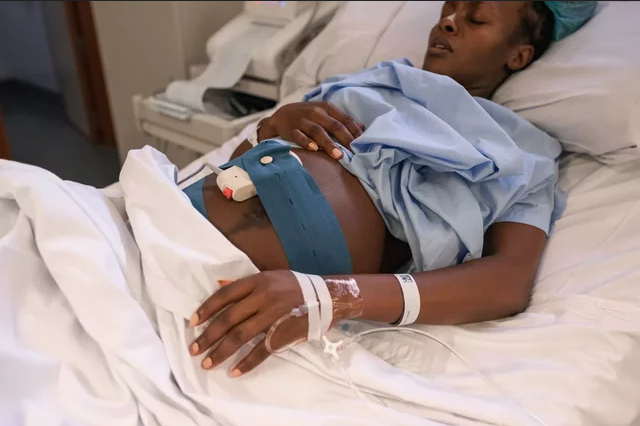
In 2021, the U.S. experienced one of its worst years for maternal mortality in recent history. According to the CDC, 2021 saw a 40% increase in maternal mortality
from the previous year. These deaths occurred during pregnancy or up to 42 days after and “occurred from any cause related to or aggravated by the pregnancy or its management.”
While the rate was 26.6 deaths per 100,000 live births for white birthing people, in our community, the rate was 69.9 deaths per 100,000 live births. Black birthing people are 2.6 times more likely to die during pregnancy, childbirth, or in the weeks following labor than our white counterparts. And according to the CDC, an estimated 80% of pregnancy-related deaths are preventable.
However, one state stands out more than others when it comes to maternal mortality: Georgia. With a Black population of over 3.3 million residents, more than 25% of Black Georgians live in counties with little to no access to healthcare. Close to half of the predominantly Black counties in Georgia are “maternity care deserts
“—counties where there is no birth center, no hospital offering obstetric care, or no obstetric provider. And more labor and delivery units have closed in predominantly Black counties compared with white counties. At the same time, twice the number of labor and delivery units opened in white rural areas
versus Black areas over the same time period.
Combine this lack of access to healthcare with the rates of low birth weights and preterm births and higher rates of labor and delivery complications, such as hemorrhage, infection, and cardiac issues for Black birthing people, and the state of Georgia has positioned itself to have higher negative maternal health outcomes than other states.
“It’s no surprise that Black maternal death increased,” says Margo Snipe, a writer covering the Black Maternal Health crisis for nonprofit organization Capital B. “There is a systemic disinvestment in Black maternal health, a disinvestment in rural health.” Snipe spent a year researching the Black maternal health crisis in Georgia and learned that a combination of factors causes a high amount of negative birth outcomes for Black families.
In her report, Snipes says, “Despite advancements in medicine and technology, racial disparities in who dies and who suffers the worst complications have persisted for decades.Black women make up most of Georgia’s maternaldeaths. They are also nearly twice as likely as white women to experience life-threatening complications as a result of childbirth, such as hemorrhage, infection, and cardiac issues.”
Birth and postpartum complications are deeply personal, but Snipes tells us to take a step back and look at the bigger picture. “Black women will beat themselves up for their own outcomes, but this is a very systemic issue. We don’t realize all of the systemic issues at play. It’s so easy for hospitals to close and for maternal care to open.”
“It is a failure in Georgia’s health care system,” Snipes says in her report. “Implement a demanding process to open new health care facilities, institute few regulations around when facilities shut down, and let Black communities suffer the most extreme consequences.”
So, what can be done?
Especially because the situation is stark, Snipes encourages Black families to share our stories. “A lot of people are going through this alone. People need to know it’s not only them who are going through these issues.”
Snipes also encourages us to know the facts surrounding Black maternal health in our own states, to stay on top of the latest data, and to support local organizations that are involved in advocating for Black families.